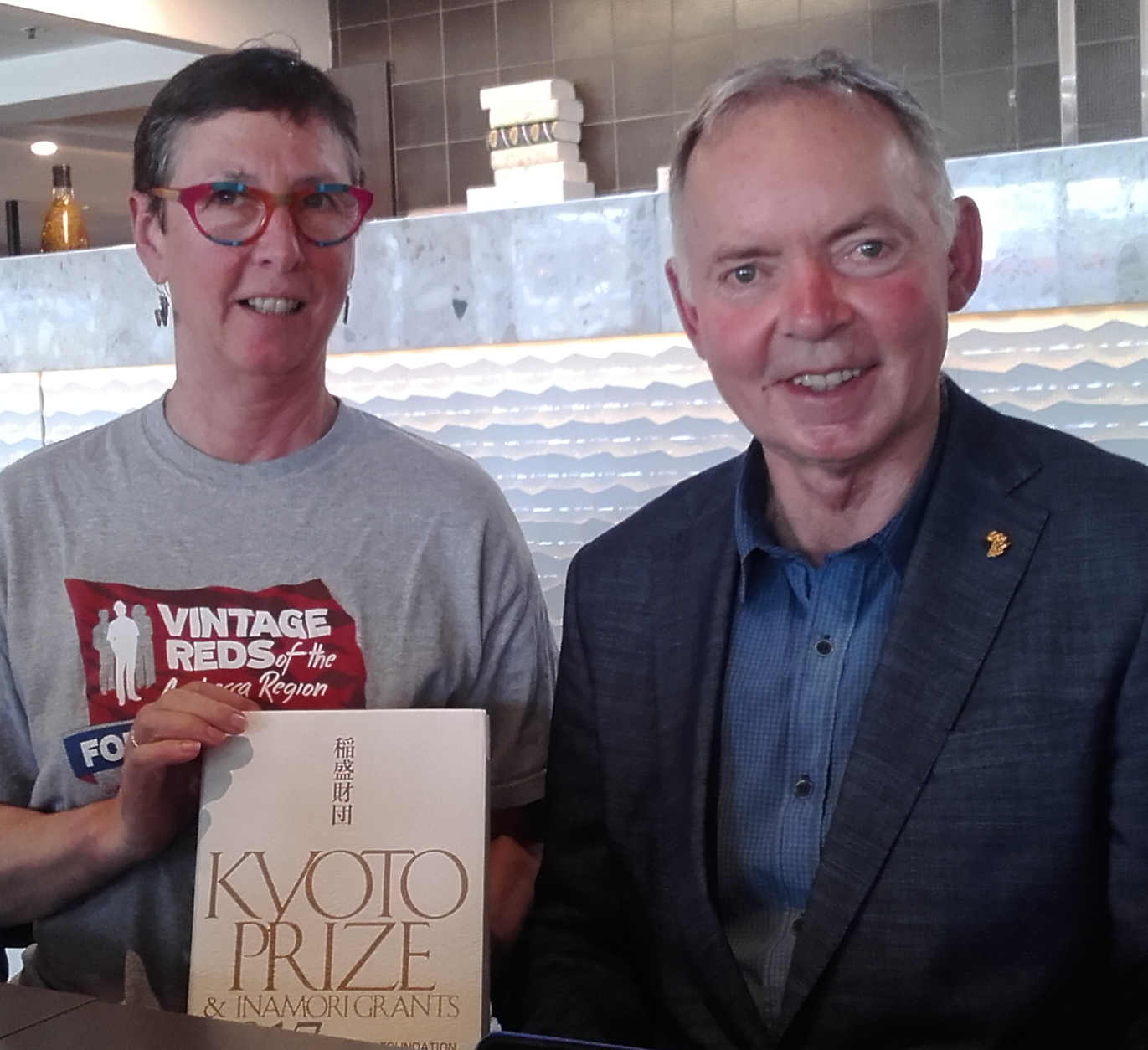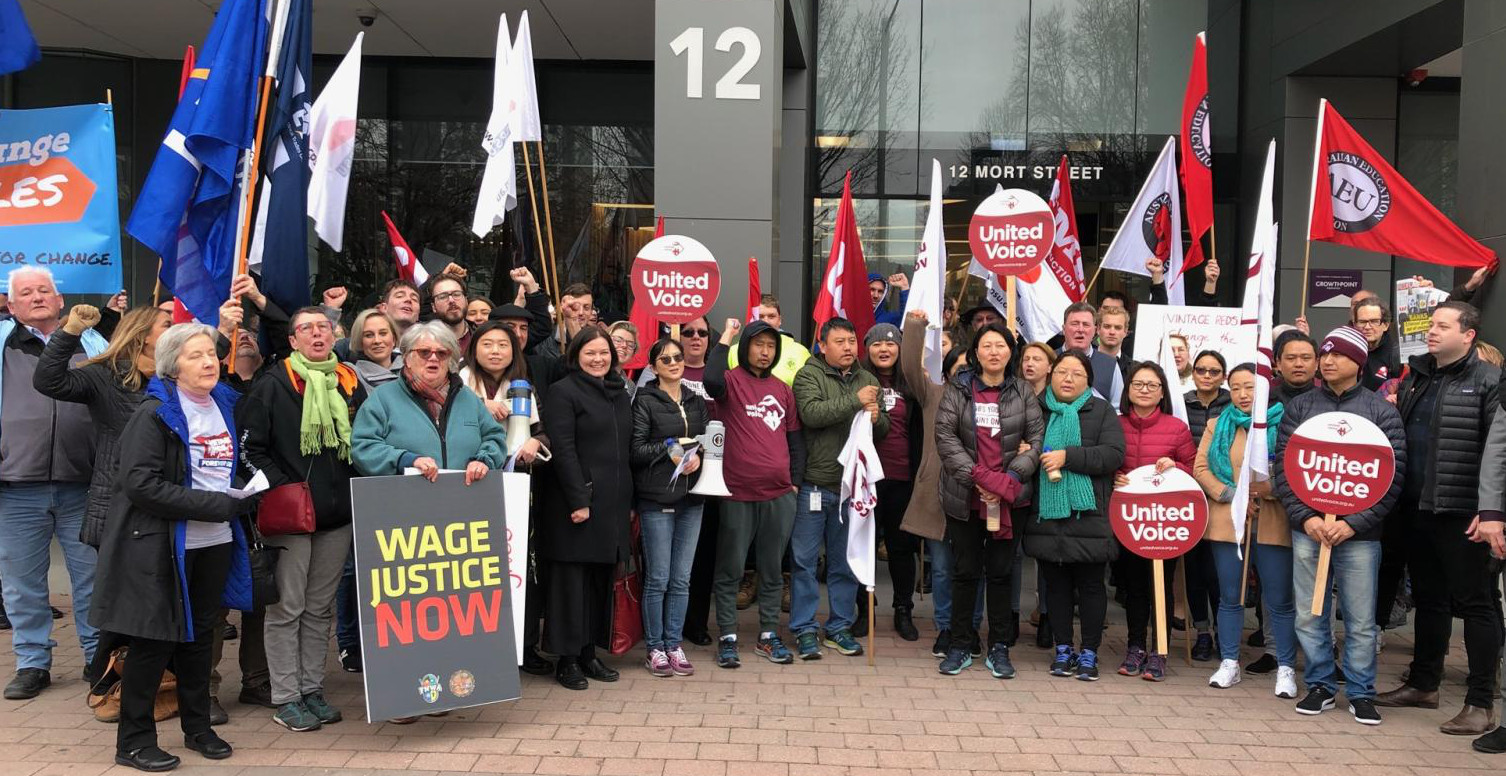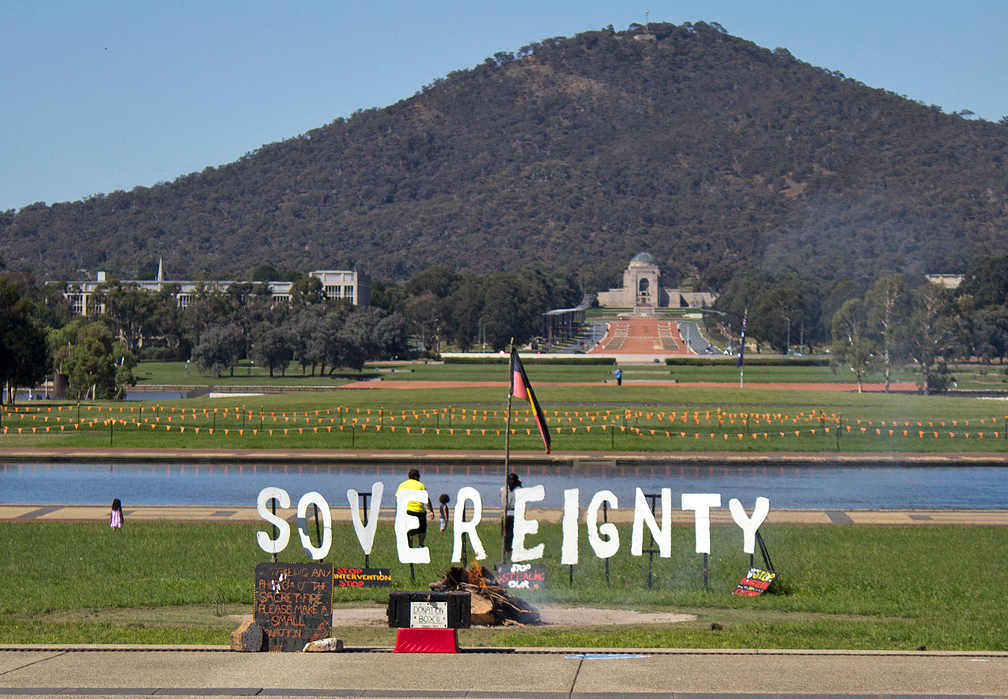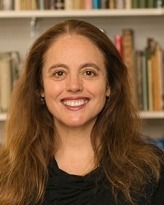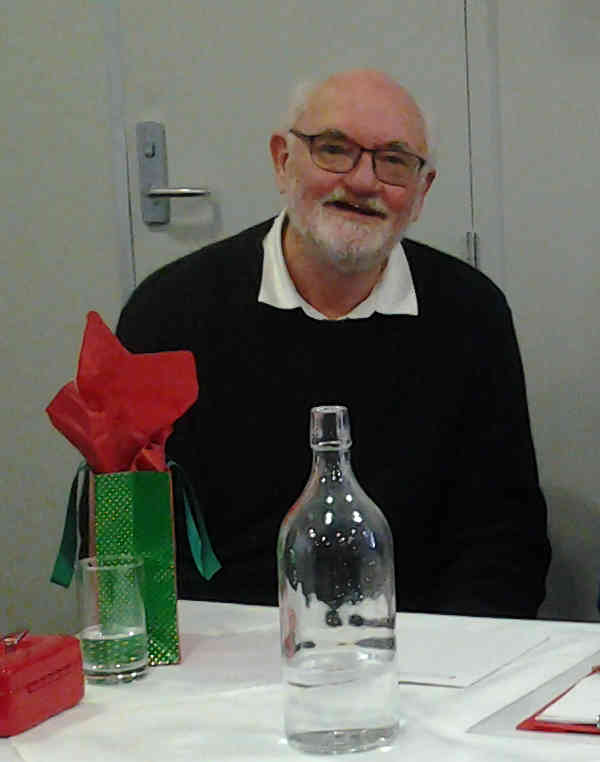We welcomed John Rodriguez to talk on “Living under Franco“. John spoke of his childhood in Spain and the impact on his family and community of the Franco dictatorship.
Just by chance, today is the 43rd anniversary of Franco’s death. In Spain there was a vote in the Congress to remove his body from “El Valle de los Caidos”, the valley of the fallen. Franco did not die in the Civil War (1936-39), which this valley commemorates. His family want to rebury him in a cathedral in central Madrid, a request the Spanish government has rejected. While this stand-off continues, he lies still where he was first buried.
John reminded us that on the first Sunday of December from noon onwards, there is a picnic at Lennox Gardens to pay homage to Australians who fought in the Spanish Civil War. All are welcome to attend, and the Spanish community cooks paella.
[Lennox Gardens memorial plaque photo: Wikimedia Commons]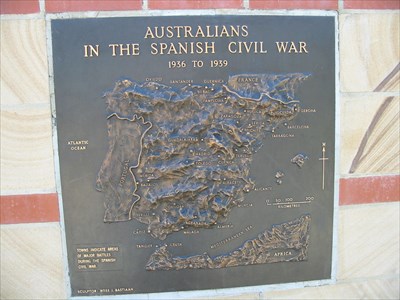
John spoke about his childhood in Malaga, on the south coast of Spain. Fear controlled their lives, fear of the authorities, fear that the neighbours might report the family to the authorities. His father was a Republican, and they were not religious, so there was also the fear that the local priest might report them.
John was from quite a poor family. He had 2 brothers and 3 sisters. His brother Alfonso made a transistor radio for the family so they could listen to music and official government news. They could also tune in to alternative radio stations (the Resistance) and find out what the Government was doing. The sound of trumpets was used to mask the sounds of people being beaten and tortured by the Guardia Civil, and he knew people who died at their hands.
At the age of 5 John went to school and was beaten on the first day – he had not asked permission to enter the classroom!
His father died when he was only 7 years old. He resisted the priest’s attempt to give him extreme unction, and the family had to make up a story to cover for this.
In 1961 Franco visited Malaga and John was lined up with the other students to see him, but the cars had darkened windows, and he never actually saw him. John left school at 12, but later was enrolled in a school that taught him English and French, after which he got a job in the Moro olive oil company which his father had worked for. At 17 he moved to Barcelona, and because he claimed he was an electrician, he got a job in a workshop. When they found out that he wasn’t an electrician, he was given a job in charge of the workshop. He moved back to Malaga, and eventually migrated to Australia.

